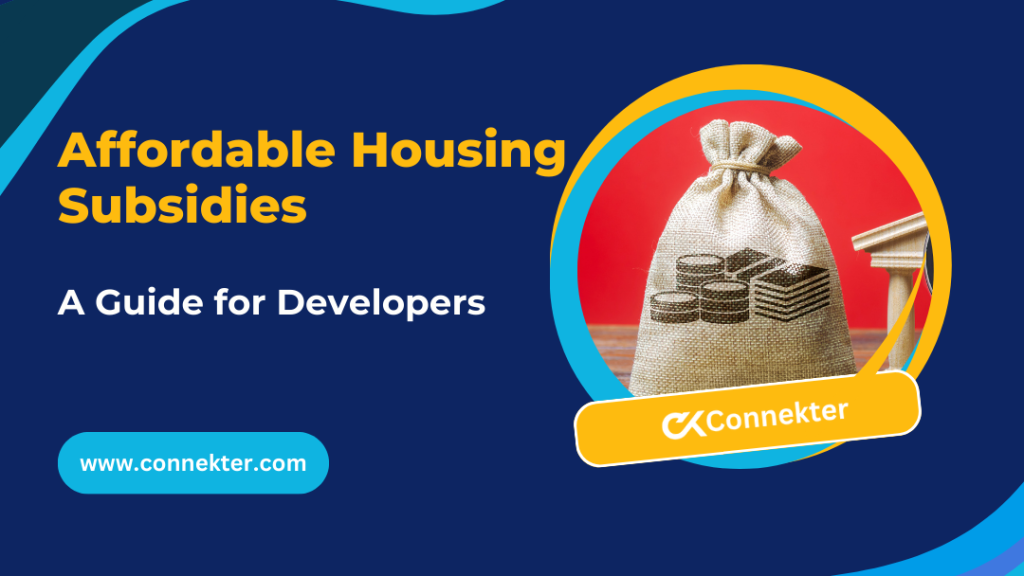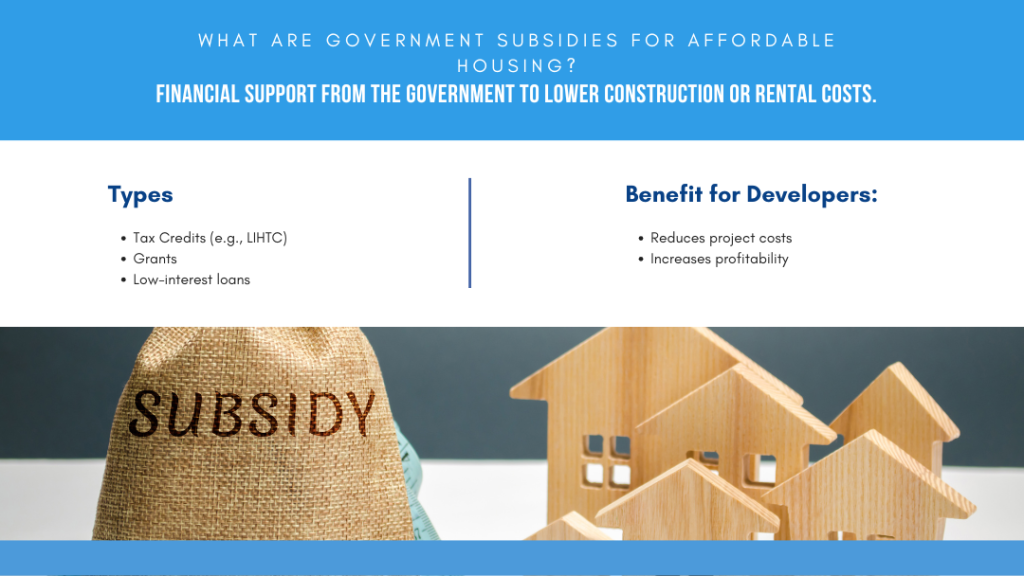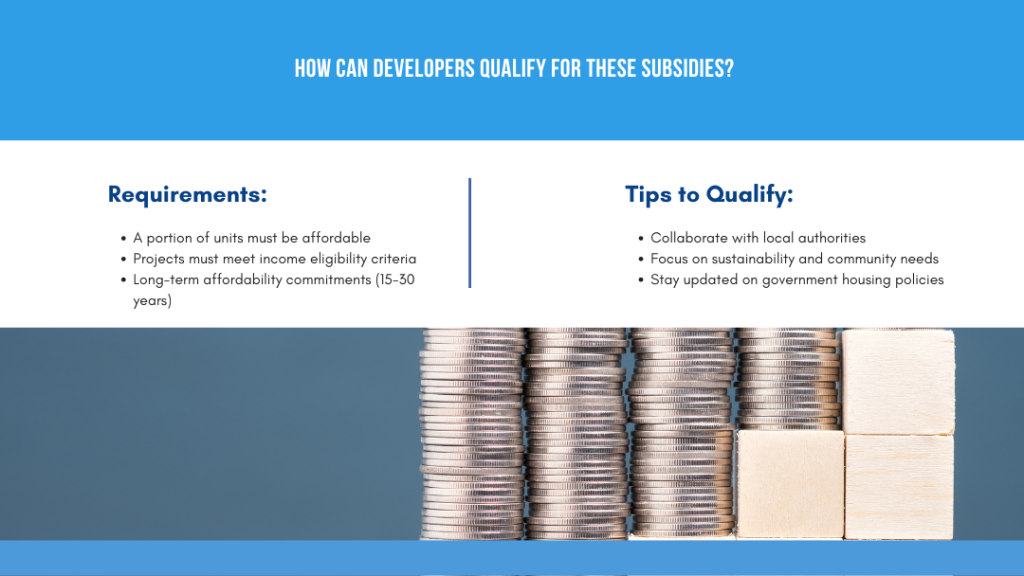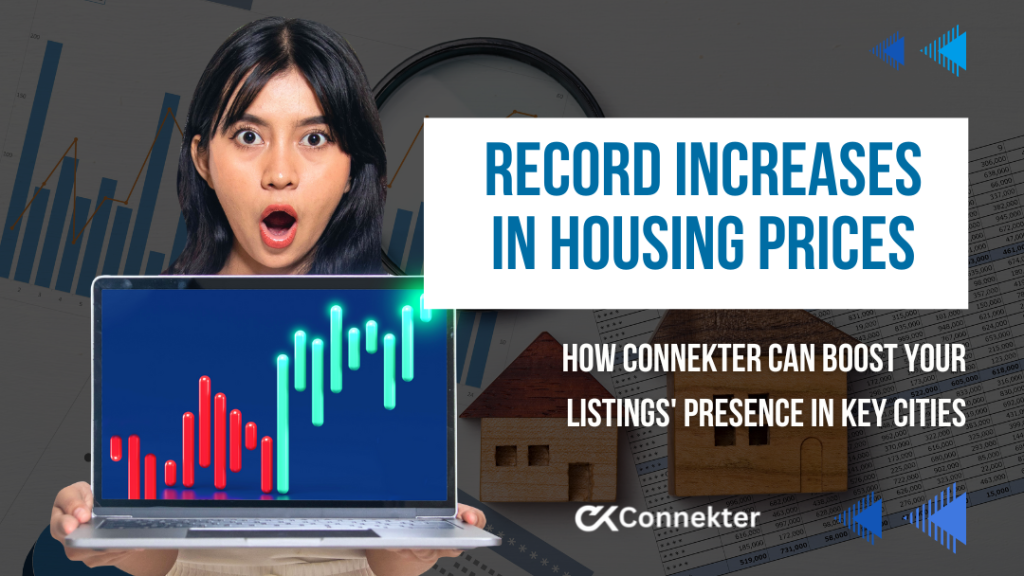
Affordable housing subsidies: Why Government Subsidies Are Key to Affordable Housing
The housing affordability crisis in North America remains a top issue in 2024. The U.S. is facing rising demand, limited supply. And skyrocketing property prices. According to a recent report by the National Low Income Housing Coalition (NLIHC), the U.S. alone has a shortage of over 7 million affordable rental homes for extremely low-income renters.
For real estate developers and realtors, navigating this complex landscape is challenging, but it’s also full of opportunities. The secret weapon? Government subsidies designed to make housing more affordable. These programs play a crucial role in bridging the affordability gap, and understanding how they work can be a game-changer for developers looking to target the low- and middle-income market.
In this guide, we’ll answer the most frequently asked questions about how government subsidies work in affordable housing, focusing on how they can benefit developers, real estate professionals, and their clients.
1. What Are Government Subsidies for Affordable Housing?

Government subsidies are financial tools provided by the government to reduce the cost of building or renting affordable housing. These subsidies come in many forms, such as tax credits, grants, low-interest loans, and direct financial aid.
In the U.S., programs like the Low-Income Housing Tax Credit (LIHTC) offer tax incentives to developers to build affordable housing.
Why is this great for developers? These subsidies can significantly lower your initial costs and even increase project profitability, making affordable housing projects much more attractive.
2. What Are the Main Affordable Housing Subsidy Programs in the U.S.?
United States:
HOME Investment Partnerships Program: The HOME Investment Partnerships Program provides federal funding to states and local governments to build, purchase, or rehabilitate affordable housing or assist low-income renters.
Low-Income Housing Tax Credit (LIHTC): The LIHTC is the biggest program in the U.S. for incentivizing the development of affordable rental housing. The government issues tax credits to developers, which they can sell to private investors to raise money for the project. This setup reduces the developer’s financial burden and makes affordable housing projects financially feasible.
Section 8 (Housing Choice Vouchers): This program provides vouchers to low-income tenants to help cover rent, making it easier for developers to attract renters and ensuring landlords receive reliable rental income.
Why is this great for developers? Understanding the available programs is key to maximizing these incentives and securing the financing that makes affordable housing projects more attractive and viable.
3. Affordable housing subsidies: How Can Developers Qualify for These Subsidies?

Regarding Affordable housing subsidies, each program has specific requirements, and often they’re tied to the number of affordable units included in the project, geographic location, and the income level of the future tenants. Developers must follow strict regulations and commit to keeping the units affordable for a set period, often 15 to 30 years.
Tips to Qualify for Affordable Housing Subsidies
- Collaborate with local and state authorities: Establishing good relationships with government bodies can provide additional support and access to helpful resources.
- Submit projects that focus on sustainability and specific community needs: Projects that incorporate energy efficiency, accessibility, or address particular housing needs (like housing for seniors or disabled individuals) often have a better chance of qualifying for funding.
- Stay updated on housing policies and financing opportunities: These programs can change with government administrations, so staying informed is crucial to seizing new opportunities.
Why is this great for developers? Developers who qualify can access significant subsidies that make their projects financially feasible and competitive in the market. Especially in areas with high housing demand.
4. How Do Subsidies Impact Developers’ Return on Investment (ROI)?
Affordable housing projects typically offer lower profit margins than market-rate developments. Government subsidies help offset these risks by providing direct financial benefits and reducing operational costs. For instance, in the U.S., LIHTC can cover up to 70% of construction costs.
- Improved Cash Flow: Subsidies like tax credits or low-interest loans reduce the amount of capital developers need to invest, leading to better long-term cash flow. Additionally, programs like Section 8 ensure stable rental income, reducing the risks associated with vacancy.
- Lower Financial Risk: Subsidies decrease financial risk by covering part of the construction or operational costs. Making the project more appealing to investors.
What makes this beneficial for developers?
By lowering financial risks and securing long-term, stable income streams, subsidized projects can provide a solid and sustainable return on investment, even in a challenging market.
5. How Can Realtors Guide Clients Toward Affordable Housing Projects?
This knowledge allows you to better guide your clients. Whether they’re interested in investing in affordable housing projects or looking for affordable rental options.

Affordable housing subsidies. Strategies for Realtors:
- Network with developers involved in subsidized projects: Building strong relationships with developers can give you access to new affordable housing projects that will benefit your clients.
- Educate clients on the advantages of affordable housing: Many buyers and renters may have misconceptions about affordable housing. Highlight the benefits, like rent stability, quality construction, and community amenities.
- Know local and regional housing policies: Different cities or regions have unique affordable housing policies and subsidy programs. Staying informed allows you to provide the best advice to your clients and helps them take advantage of emerging opportunities.
Why is this great for realtors?
As a trusted advisor, you’ll stand out by providing clients with expert guidance on affordable housing opportunities. This helps them secure properties that meet their needs while boosting your own business.
Additional Resources for Developers and Realtors
- U.S. Department of Housing and Urban Development (HUD)
- National Low Income Housing Coalition (NLIHC)
- Canada Mortgage and Housing Corporation (CMHC)
- Housing Choice Vouchers Information
- LIHTC Program Overview
- Future Trends in Lead Management Automation: Connekter Features- Read more…
- Real Estate Market Forecasts for the US and Canada- Read more…
Connect with Us today!
Are you a developer or real estate professional looking to dive deeper into affordable housing opportunities? At Connekter, we specialize in lead generation and connecting professionals with the right opportunities in the U.S. Reach out to us to learn more about how we can help you leverage government subsidies and make the most of your next project. Contact us today to discuss your goals and see how we can support your journey to success!

